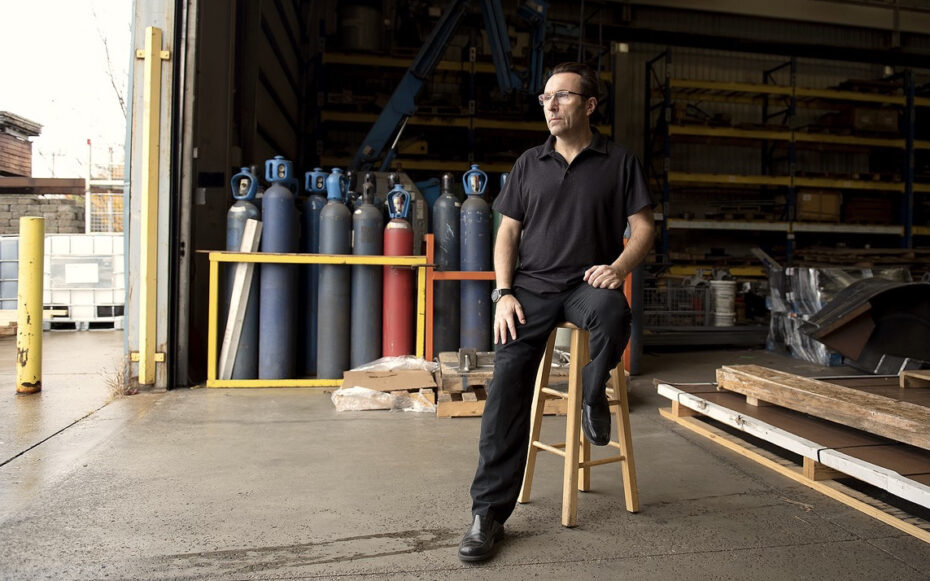
Taking climate action isn’t a luxury, it’s a necessity. Many businesses that are directly motivated by sustainability sell premium products, but meaningful climate action needs to include businesses of all kinds. It can’t only be the shop that sells locally-sourced organic food – it needs to be the companies that installed the shelves, sold the fertilizer and delivered the goods too.
Researchers at the McGill Sustainability Systems Initiative have created a new online social platform that encourages small and medium sized enterprises (SMEs) to take action. They have partnered with the National Film Board of Canada to produce digital stories about SMEs that are addressing the climate crisis in their day-to-day operations, and will share those stories with the wider business community via the new bilingual platform.
“This is an action research project, and we want to ensure that climate action takes place across all industries and sectors. We want to make this about everybody,” says Dror Etzion, an Associate Professor of Strategy and Organization at McGill’s Desautels Faculty of Management.
“There is a lot of research about how we can take action as individuals, and also about how large companies can address climate change. But there is a gap in the research about what SMEs can do, and what policy approaches could catalyze real world efforts.”
PIVOT’s target audience is businesspeople. By highlighting the success stories and the challenges of their peers, the platform hopes to inspire further action.
“That will be a powerful lever to bring other SMEs on board,” says Etzion, who is co-leading the project with Catherine Potvin, a Professor in the Department of Biology and the Canada Research Chair in Climate Change Mitigation and Tropical Forests.
“We know that stories are profoundly important to how human beings think, feel, and act. This is a major initiative to better understand how we can create narratives to effect social change,” says Andrew Piper, PIVOT team member and Professor in the Department of Languages, Literatures, and Cultures.
“A key objective for the National Film Board is to amplify stories about climate action in Canada”, agrees the executive producer of the National Film Board’s Digital Interactive Studio, Louis Richard Tremblay.
“To see someone doing this that you can relate to, and not someone talking down at you or the government telling you what to do. We feel that this could be the thing that allows people to say, ‘Hey, I can do something as well,’” says Etzion.
In aggregate, SMEs are an economic force. There are 1.1 million of them in Canada, and most are very small, but collectively, they make up the bulk of Canada’s private sector. SMEs employ more than 7 million people, and account for more than half of the private sector’s economic output. The numbers are similar in other major economies, and their potential impact is enormous.
“There is some low hanging fruit – some easy ways to build momentum and generate optimism,” says Potvin.
Paul Rak is one business owner who has taken steps to make his company carbon neutral, and the President of VeriForm Industries made his business more profitable in doing so. The Cambridge, Ontario metal fabrication company makes components used in the transportation, mining, and energy sectors.
Rak has been taking steps to reduce VeriForm’s greenhouse gas emissions since 2006, and implemented an energy reduction plan that touches all aspects of operations – from the compressors used in manufacturing to the coffee maker in the break room. There were major savings in shipping and receiving.
“Every time one of the five large garage doors opened to let in a truck for unloading, we were essentially heating the outside for hours,” he says.
So Rak installed sensors that turned heaters off when garage doors were open, and the team rearranged the workspace so they could unload shipments more quickly. The switches cost just $1,250 – but the changes yielded an immediate savings of $5,560 per month.
But cost savings aren’t the only reason that SMEs take climate action. Entrepreneurs can have many motivations, and PIVOT is seeking to understand them. The project’s data analytic lead scientist is Animesh Animesh, and the Associate Professor of Information Systems at the Desautels Faculty of Management will study how SMEs interact with the site.
“SMEs can have very different rationales,” says Etzion. “There are some founders who believe that climate change is important, and are concerned about their grandkids. Others approach it as a personal challenge, and find it gratifying to do something meaningful. Sometimes, it just makes business sense. Understanding these different perspectives is part of PIVOT’s research aims.”
Are you a SME taking steps to address climate change? PIVOT wants to hear about it. To share your company’s story, complete the form on the PIVOT website, or contact the team on Twitter: @GoPivotorg

This is a great read! What caught my attention is the idea of sensors that turned off heaters when garage doors were open. It’s really cost efficient, you’ll save a lot of energy with that one. And talking about garage door, we should maximize the use of it, specially facing climate crisis, it could be a great move if the idea of that sensor was made. Personally, I am trying to start it with my home, to use cost efficient appliances. All in all, I’m just thankful for the idea, I am currently working out with my garage, and I… Read more »